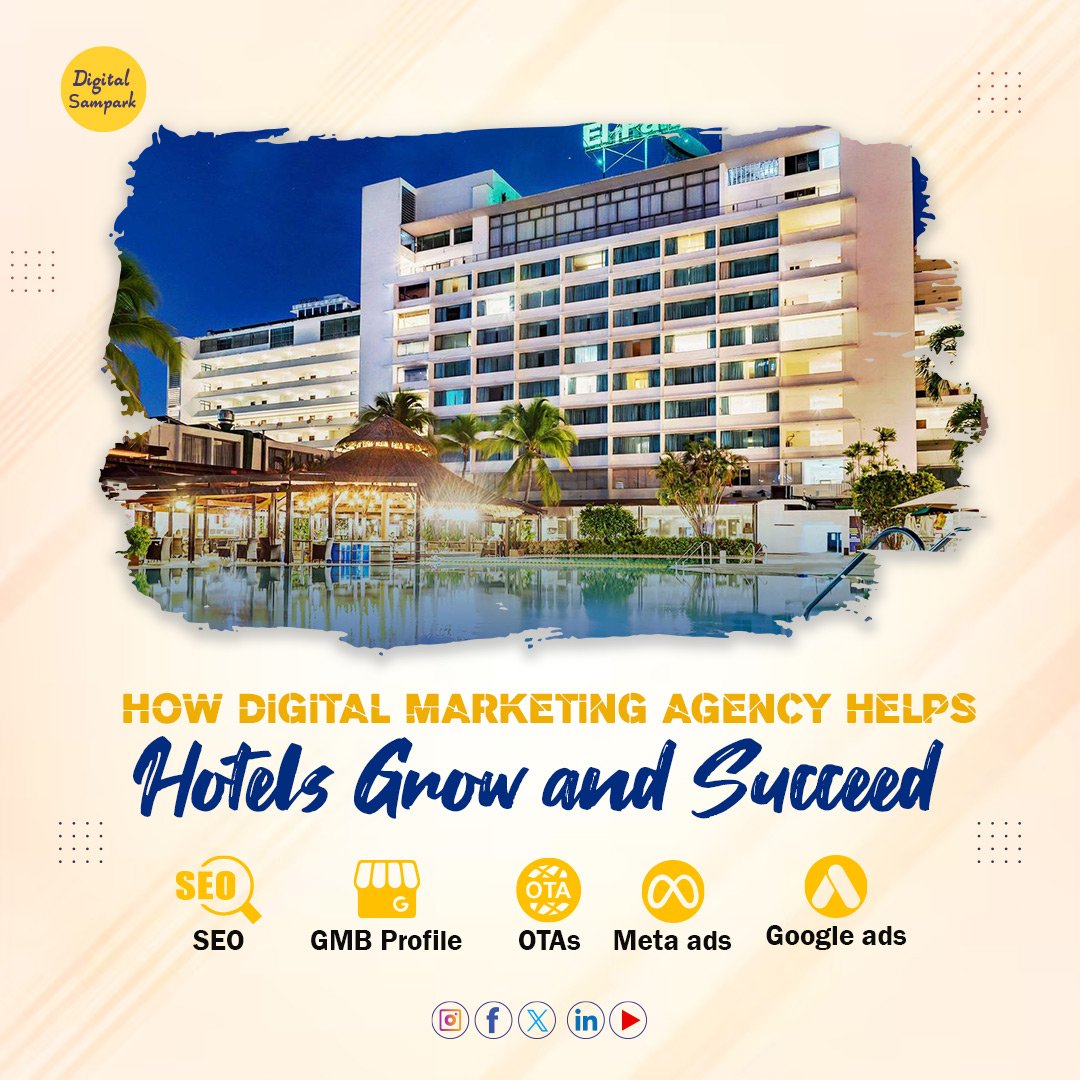The hospitality industry is more competitive than ever, with travelers relying heavily on online searches, reviews, and social media before making booking decisions. Digital marketing has become an essential tool for hotels to attract guests, increase direct bookings, and build brand loyalty. Let’s explore how digital marketing helps hotels thrive in today’s digital landscape.
1. Enhancing Online Visibility
Most travelers start their journey with a Google search. Digital marketing ensures that our hotel ranks high on search engine results pages (SERPs), increasing our chances of getting noticed. Strategies like SEO, Google My Business optimization, and local search marketing help hotels improve their online presence and attract more guests.
2. Driving Direct Bookings
While online travel agencies (OTAs) help bring in bookings, they also charge high commissions. Digital marketing helps hotels encourage direct bookings through:
- A user-friendly and mobile-optimized website
- Special offers and discounts for direct bookings
- Email campaigns targeting past guests with personalized deals
- Retargeting ads to bring back visitors who didn’t complete their booking
3. Building Stronger Customer Relationships
Social media, email marketing, and personalized messaging help hotels stay connected with past and potential guests. Engaging with customers through platforms like Facebook, Instagram, and Linkdin allows hotels to:
- Showcase their property’s unique experiences
- Respond to guest inquiries quickly
- Share promotions and exclusive deals
- Build trust and loyalty through interactive content
4. Leveraging Social Proof and Reviews
Online reviews and testimonials significantly impact travelers’ booking decisions. Digital marketing helps hotels manage their online reputation by:
- Encouraging satisfied guests to leave positive reviews on Google, TripAdvisor, and social media
- Responding professionally to all reviews, addressing concerns promptly
- Showcasing top reviews on their website and social media to build credibility
5. Attracting the Right Audience with Targeted Ads
Hotels can use digital marketing to reach their ideal guests through targeted advertising on Google, Facebook, and Instagram. Pay-Per-Click (PPC) and social media ads allow hotels to:
- Target specific demographics based on age, location, interests, and travel behavior
- Retarget website visitors who didn’t complete their bookings
- Promote seasonal offers and last-minute deals to boost occupancy
6. Creating Engaging Video and Visual Content
High-quality photos and videos play a key role in a guest’s decision-making process. Digital marketing allows hotels to:
- Create virtual tours showcasing rooms and amenities
- Share behind-the-scenes content and guest experiences
- Use video testimonials to build trust with potential guests
7. Using Data and Analytics to Improve Strategies
One of the biggest advantages of digital marketing is access to data. Hotels can track their marketing efforts and make data-driven decisions using tools like Google Analytics, Facebook Insights, and CRM systems. Key metrics include:
- Website traffic and booking conversion rates
- Social media engagement and ad performance
- Email campaign open rates and guest retention
8. Staying Ahead of Competitors
With an effective digital marketing strategy, hotels can differentiate themselves from competitors by:
- Highlighting unique selling points (e.g., eco-friendly stays, pet-friendly services, luxury amenities)
- Engaging in influencer and affiliate marketing to expand reach
Conclusion
Digital marketing is no longer optional for hotels—it’s a necessity. From increasing online visibility and driving direct bookings to enhancing guest relationships and optimizing advertising efforts, digital marketing provides hotels with the tools they need to grow and succeed in the hospitality industry. By leveraging the power of SEO, social media, targeted ads, and data analytics, hotels can attract more guests, increase revenue, and build lasting brand loyalty.

